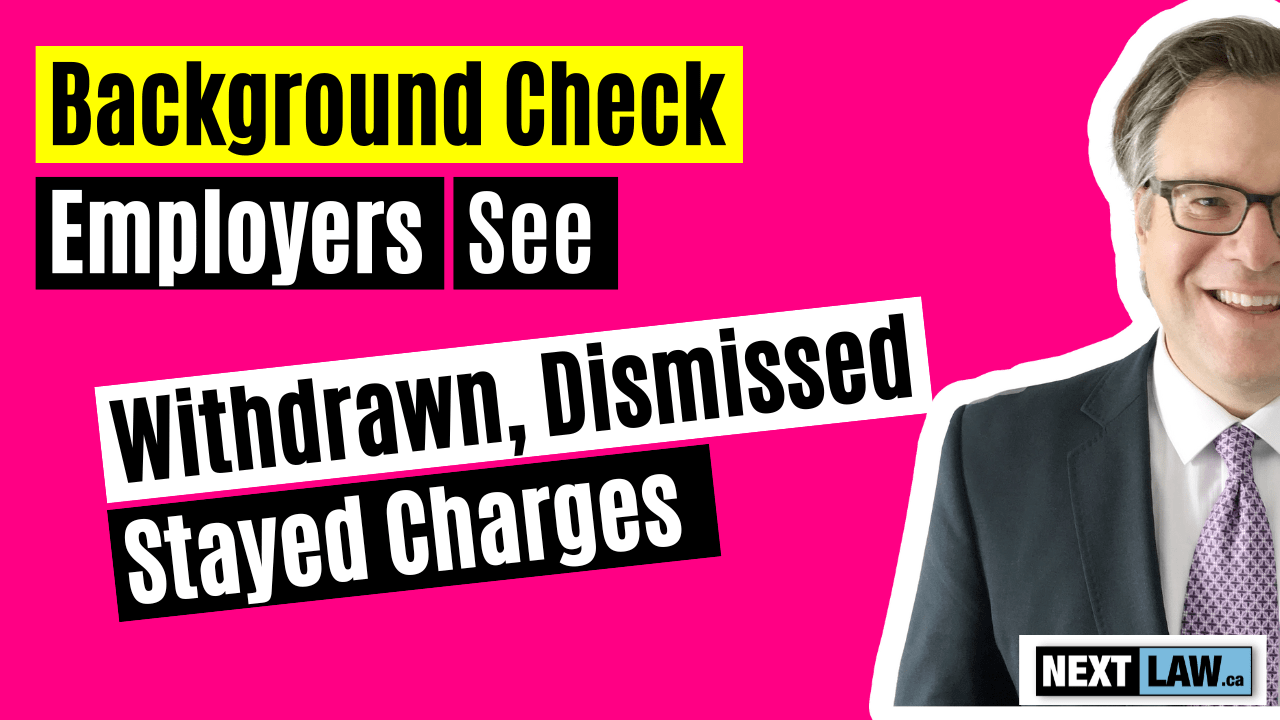Background check: Can an employer see withdrawn, dismissed, acquitted or stayed charges?
- Can your employer see charges that were withdrawn, dismissed, acquitted or stayed?
- That’s what I am going to cover in this article.
- Most people don’t know this, but an employer will see on a background check that you were charged even if your charges were withdrawn, dismissed, acquitted or stayed.
- Let me explain.
1/ What’s the difference between a conviction and a non-conviction?- When removing traces of your criminal activity from your background check, you need to understand the difference between a conviction and a non-conviction.
- A conviction is when you are charged by the police, found guilty in a court, and a conviction is registered.
- At that point, your criminal record, which details your conviction, is stored in CPIC, the criminal record database managed by the RCMP.
- If you get a Pardon, now called a Record Suspension, the Parole Board of Canada will order the RCMP to remove your criminal record from the CPIC criminal records database.
- So when an employer does a background check on you, they will not see your conviction record. Your background check will come back clean.
2/ How do you clear your non-conviction record?- But this is not the case with a non-conviction.
- A non-conviction is where you had interactions with the police which led to charges but ultimately, there was no conviction.
- Records of your non-conviction, including your charges, police notes, photographs and fingerprints, are stored in a few different places, including the databases at the Police station where you were charged and the Court where your case was processed.
- You can’t remove those records with a Pardon because a Pardon only applies to convictions.
- For non-convictions, you need to get a File Destruction which will destroy traces of your non-conviction.
- You need to make a File Destruction request to the Police service where you were charged.
- However, here is what most people don’t know.
- The decision on whether to destroy your non-conviction record lies with the police.
- If the Police refuse your request for a File Destruction, your non-conviction charges will be a permanent part of your record and will be disclosed on any background check conducted by an employer.
- But this is not the case with a non-conviction.
- A non-conviction is where you had interactions with the police which led to charges but ultimately, there was no conviction.
- Records of your non-conviction, including your charges, police notes, photographs and fingerprints, are stored in a few different places, including the databases at the Police station where you were charged and the Court where your case was processed.
- You can’t remove those records with a Pardon because a Pardon only applies to convictions.
- For non-convictions, you need to get a File Destruction which will destroy traces of your non-conviction.
- You need to make a File Destruction request to the Police service where you were charged.
- However, here is what most people don’t know.
- The decision on whether to destroy your non-conviction record lies with the police.
- If the Police refuse your request for a File Destruction, your non-conviction charges will be a permanent part of your record and will be disclosed on any background check conducted by an employer.
Can an employer see withdrawn, dismissed, acquitted or stayed charges on a background check?
Yes, an employer can see withdrawn, dismissed, acquitted or stayed charges on a background check. These are considered non-conviction records and cannot be removed with a Pardon (Record Suspension). To have these records removed, a File Destruction request must be made to the police station where the charges were filed, but the decision to destroy the records ultimately lies with the police service that laid the charge.
How can I clear my non-conviction record for a background check?
To clear your non-conviction record for a background check, you will need to make a File Destruction request to the police station where the charges were filed. This request will ask the police to destroy any records of the non-conviction. However, it's important to note that the decision on whether to destroy the records lies with the police, and if they refuse the request, the non-conviction charges will be a permanent part of your record and will be disclosed on any background check.



